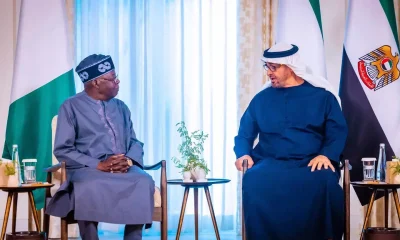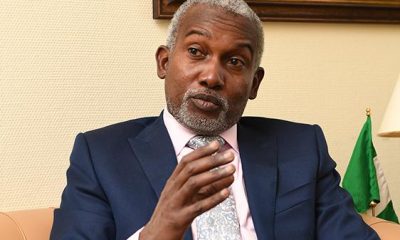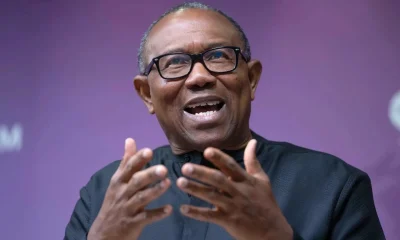Special Report
From ‘Urgent 2K’ To Building Success Amid Nigeria’s Economic Hardship

The economic hardship in Nigeria has been a constant struggle for its citizens, with the country facing numerous challenges, such as inflation, high unemployment rates, and a decline in oil prices.
This has led to a sense of urgency among individuals and businesses to find ways to survive and thrive in these difficult times.
In response to the new reality, a new breed of entrepreneurs and business leaders has emerged. These 21st-century individuals are seen as people who are not afraid to take risks and think outside the box in order to achieve success in a challenging economic environment.
Urgent 2K Generation
There is a common phrase in Nigeria which goes thus – ‘Urgent 2k’.
Young Nigerians commonly employ this term to describe an impromptu loan request received from acquaintances or family members to fulfil essential personal requirements.
Naija News understands that this type of loan typically falls within the range of ₦2,000 to ₦5,000, hence its given name.
However, as Nigeria’s economic landscape became even more challenging for almost everyone, the younger generation is shifting from the ‘begging trend’ using the term ‘I need urgent 2k’ to a more productive lifestyle by investing in creativity and exploiting many possibilities around them.
Although many Nigerians still struggle daily to make ends meet and the “urgent 2k” (2,000 Naira, a small sum) plea may not be entirely out of space, countless stories still emerge of resilience and resourcefulness.
Making Lemonade Out Of Lemons
The saying “When life presents you with lemons, create lemonade from it,” is a proverb that aims to inspire optimism and a proactive mindset when confronted with challenges or setbacks.
Know that lemons symbolize bitterness or hardships in life, while the act of making lemonade represents transforming those difficulties into something favourable or desirable.
It is worth noting that the “urgent 2k” reality has pushed many people to identify market gaps or ways to improve existing services.
This could be anything from a unique food recipe to a tech-enabled solution for a local problem.
Take, for example, a young woman who starts a mobile tailoring service, bringing alterations and repairs directly to customers. Or a graduate who identifies a lack of after-school tutoring options and creates an online platform connecting students with tutors.
Embracing Creativity and Hard Work
It is commonly said that the road to success isn’t easy.
Truly, there will be challenges in every little beginning, from limited access to capital to navigating complex regulations. However, those who persevere often demonstrate:
- Adaptability: Being willing to pivot and adjust strategies as circumstances or customer needs change.
- Customer Focus: Prioritizing excellent customer service and building trust with their target audience.
- Continuous Learning: Actively seeking new skills and knowledge to stay ahead of the curve.
Inspiration for Others
Nigerians are renowned for their hustle. It’s about taking initiative, working hard, and being resourceful. From starting small, often with minimal investment, to reinvesting profits back into the business.
Amid the new normal, leveraging technology is another sure way to thrive – utilizing social media platforms for marketing, mobile apps for transactions, and online tools for communication and collaboration.
Networking with potential customers, suppliers, and mentors who can offer guidance and support.
It is worth noting that the stories of those who thrive during economic hardship serve as a beacon of hope for others. They show that with determination, creativity, and a focus on solving problems, success is possible even in challenging circumstances.
This isn’t just about individual achievement; it’s about inspiring a spirit of entrepreneurship that can contribute to Nigeria’s economic growth and development. By sharing success stories and fostering a supportive ecosystem for small businesses, we can create more opportunities for Nigerians to move from “urgent 2k” to commanding their own economic destinies.
Hardship: I Was Nearly Lured Into Internet Fraud
“In a country where internet fraud is celebrated, there was even a point in my journey; I remember it was long, long ago; I don’t know if I’ve ever shared this before, but I used to have this cousin that nearly lured me into internet fraud. That was when I was on university days. Thankfully, I didn’t go down that route,” a renowned Nigerian entrepreneur and transformational speaker, Kenny Nwokoye, told Naija News while sharing his journey into financial freedom.
In an exclusive interview, Nwokoye, popularly known as ‘Coach Kenny’, revealed how situations around him forced him into a life of independence.
He said, “After I lost my job in 2018, it forced me into a life of independence. Because I didn’t have any savings, all I left the job with was a blind Samsung phone, a green-screen Samsung phone.
“That was all I left the job with. After three years at the company, I worked my way up the corporate ladder, from contract to junior to senior to management, and my report card was a blind Samsung phone.
“But, like I said, it forced me into a sense of independence, and I started looking within for what I could do instead of looking for what I could get in other people’s bank accounts.
“I found out or I realized that I had two skills at the time. One was graphics design, the other was motion graphics. Wow. You know, like video animation. So I started offering those skills in exchange for peanuts, and people were paying me like 3K for logo designs, 2K for logo designs. 5,000 Naira for CVs, you know, I would do CVs for them. And I was really making ends meet.
“Actually, I wasn’t even making ends meet. That was how I was able to pay for my data. That was all I was able to afford to do.”
Speaking further on his way up, Nwokoye said: “I was still living under my parents at the time. My dad was sick. My dad is still not fully recovered yet. He had a stroke like six years ago. So I had to move back home and I was taking care of him while I was building my internet business at the same time.
“So I needed to be close to him while doing that so that as far as I was concerned, nobody would take care of my dad the way I would.
“So I was trying as much as possible to take care of him while building the internet business at the same time. So I was trying to navigate several challenges at that time. One of the challenges was the fact that I didn’t have a good phone.
“So the only way I could use my phone to work was by connecting it to the hotspot and connecting WhatsApp on my small laptop, which I borrowed from my mom. Right. You know. So, but that was the foundation for things.”
Whoever Can Ask, Answer This Question Is One Step Closer To Success
Speaking on how Nigerian youths can better their lives, Nwokoye expressed concerns over the country’s current economic crisis and the people’s struggle to make ends meet.
However, the online entrepreneur and business coach believes that despite the challenging situations in Nigeria, the people, particularly the youths, can better their lives if only they can sincerely ask themselves, ‘What Can I do?’ and can also provide answers, take actions in respect to their answers to the same question.
Instead of waiting around for urgent 2k and blaming the government for everything, Nwokoye charged the people with taking responsibility and making decisions that would improve their lives.
He said: “To be honest, I’m not going to pretend as if I don’t know that things are hard in the country. Yes. Sometimes, when there is no salvation in Israel, Israel will be forced to go to Egypt, do you understand?
“So when I lost my job, then I could have gone to Egypt. I could have gone to beg. That was one of my choices, you know, there’s a reason why God allows us to choose between life and death.
“Look at successful people who have defied the odds. They’ll tell you the same thing: that they are successful not because they are lucky but because they chose to be successful. So I chose to be successful in that moment of my life.
“I’ve had two choices: I could have gone to Egypt, or I could have become a producer and become Egypt. Do you understand? So I could have gone to Egypt then become a producer, or I could have become a producer and become Egypt, do you understand?
“And even though I had decided not to become a producer of value, I became a producer of useful things that people would exchange money for, and I now became my Egypt. I became the Egypt which I have become now by God’s grace, and people have been coming from far away to come and take from Egypt.
“It didn’t make as much sense as it does now to me then but at that point, I could still see very clearly that I could have either become a victim of circumstance or I could have become responsible for my actions and my outcomes, and I chose to be responsible for my actions and my outcomes I chose to look within for what I could have been looking for in someone else’s bank account and that’s why I started building my business that’s why I started building my freelancing business, and I started building my online business, you know and that’s how I got to where I am now.
“Yeah, so ultimately, what I would say, as I like to put the icing on the cake here, is the youth of Nigeria should not be looking for in other people’s bank accounts what they can find within themselves and the easiest way to get beyond that stagnation point is to ask yourself what can I do?
“That’s the magic question. If you can answer it, you can put food on your table, pay your bills, and get rich.
“But the reason many people can’t answer that question is the same reason former President Muhammadu Buhari would say that Nigerian youth are lazy.
“Because they don’t want to ask that question, they don’t say what can I do? They instead say, who can I ask?.”
The Government Is Doing Its Best, But The Wrong Way
Speaking on whether Nigeria’s government is doing well in improving the livelihood of Nigerians and what it has done so far in empowering the youths, Nwokoye answered in the affirmative that the government is doing its best.
However, he noted that the “Government is doing the best that it can, but in the wrong place.”
Nwokoye explained: “What I mean is, if you look at countries like the UAE, I live in Dubai, and I’ve been there for about two years.
“If you look at countries like the UAE and observe where the government is spending the most resources, you’re going to observe that the government does not prioritise spending money on the masses as much as it does in the different sectors of the economy, number one.
“And two, in the intellectual field. For example, if you go and do some research and find out how much money has been allocated towards AI research and development in the UAE, your mind will explode.
Where is Nigeria in that conversation?
“We’re still talking about N-Power, helping people set up soup businesses, and helping people set up crayfish businesses.
“They are empowering the masses, whereas the government doesn’t understand that wealth is not for the masses. Wealth is for the select few.
“The N-Power scheme’s best is to empower people to put food on their tables, but it doesn’t build economies.
“It helps people survive—that’s all it is. It helps people survive, period. Beyond survival, what about thriving? What about continuity?
“What about development? Do you understand? This is how I see it. They are doing the best they can, but they are doing it in the wrong place. And I believe that if it was their priority to actually build sustainably, then they should re-strategise and re-channel that attention. You understand? There are a lot of people with fantastic business ideas.”
The Citizens Have Their Role To Play
In all of these, Kenny Nwokoye states that Nigerian citizens, too, have a role to play in making things better. He acknowledged that the people have their own issues.
His words were: “Now, all of this is not to say that the citizen is not responsible. Even we, as Nigerians, know we have our own issues.
“Otherwise, the government does not follow our people to different countries where they have been banned. It’s not the government that caused Nigeria to go to the UAE and ban Nigerians. Nigeria goes to Ghana, but Nigerians cannot get a passport in Ghana.
“It’s the same thing everywhere. The pattern keeps repeating itself. And from what I understand, it is not the government’s fault, nor is it the fault of the citizen.
“So, the question now becomes, whose fault is it? It’s not about whose fault it is. It’s about whose responsibility it is.
“But you see, the problem is that our people who have received this pain have been trained by pain. Nigerians have been trained by pain for years, for decades, for generations.
“We have been trained by hardship. We have been trained by pain. And it has made us become numb. And the way we deal with pain is by looking for the easiest, fastest, freest way to get things that we want.
“So, I personally believe that the first thing that must be done is responsibility. To be honest, it all comes down to that. That’s the foundation for change.”
Digital Skills: What Role Is It Playing In The Future Of Work
Responding to questions on the role of Digital Skills in the current dispensation, ‘Coach Kenny’ said: “I don’t even want to say that I see a future where certificates will no longer be relevant.
“To be honest, we are now in that world. In that world where whether as a business owner or an entrepreneur, skill sets become paramount.”
Your Skill Set, Not Your Certificate
He continued: “When you meet entrepreneurs today, most are more intentional, more concerned about what you can do than what you have read in the university.
“So their attention is focused on what you can do—your skill set, not your, what would I call it now? Not your certificates—what you have on paper. Yeah, you know?
“It’s on your skill set, not your certificates, on that side. So we have gotten to that point already. This doesn’t mean, however, that there are no industries that prioritize certificates.
“There are still many industries like that. But we know that it is not there, in quotes, businesses or companies that actually build economies. Do you know how many entrepreneurs are in the world today?
“Do you know how many self-owned businesses there are in the world today? Do you know how much those companies contribute to the world’s economy?
“So if you take a very close look at that, you will find out that in the real sense of things, the real value in people today is not in what they reap or what they can do.
“So if somebody is looking for a job tomorrow, if the business focuses on becoming better than they were yesterday, and the person focuses on personal development in the different areas that matter to them.
“For example, I want to become good in tech. Naturally, I should go and start acquiring some tech skills, isn’t it? I don’t need to go to Harvard to get my tech skills. I just need to go and acquire some tech skills.
“By acquiring those tech skills, based on what I can afford, I will become valuable to people who I talk with about tech. Right?
“I’ll be able to apply my tech skills in their business. I’ll be able to discuss with them in a way that they can relate to because it’s all coming from my knowledge of tech.”
Skills Pay The Bills
“Skills, they say ‘skills pay the bills’. You can lose everything that you have ever made. You can lose all your followers. You can lose all your social media accounts. You can lose all the money in your bank accounts,” Nwokoye reiterated.
He added, “You can lose all your friends, but you can never lose your skills. Wow. Wow. That’s deep. I just picked something for that. That’s deep. All right. So I really appreciate it.”
The Best Approach To Building Success In This Economic Hardship
Speaking on the best approach to building success even amid the country’s current economic hardship, Nwokoye said: “Naturally, most people don’t have money. People have more time than money, especially when they are trying to pay their bills. And if you’re trying to pay your bills and you have more time than money, I believe that that time is a seed.
“You can plant that time in yourself by becoming better at what you do, and you can plant that time in your business by applying your knowledge in that business.
“You can apply, you can plant that time in other people by applying what you know to help them become better. Either help them get results, help them get better and so on and so forth.
“So, as far as building a business is concerned, I started it the wrong way with the mindset that I was going to cash out, and I was chasing shortcuts as a result of it.
“The truth is at the root, at the root of faulty intentions, you will always get zero results. I mean, if you look at people who do not have results, check their intentions.
“I’m telling you this truth. I’m telling you this one from working with thousands of people for the past five years. If you look at people who have no results, check their intentions. You will always find out that their intentions are short-term.
“They are shallow, surface-level, and not deep enough to make them want to do what is needed to get the results. The average Nigerian mentally associates pain with anything that takes time.
“So as far as they are concerned, they don’t want to build any business. They just want to make money. They don’t want to build sustainable systems. They just want to cash out.
“The only thing that they will hear about at that level is which one dey work now, which one they work now, which one you ‘dey use’, and which one this person dey use. They are looking at what people are doing.
“They are not looking at the thought process behind what people are doing. Does that make sense? So at the end of the day, you now find a bunch of rinsed and repeat people who are just copying what the other person is doing. Nobody actually knows what they are doing.
“And that’s why it’s so easy to become top 15% in any industry today. All you need to do is get good at what you do. By just focusing on becoming better at what you do, you become the top 15%.
“If you refine your systems, processes, and execution, you will become part of the top 1%. It’s not hard. There is no saturated market, and it’s never saturated at the top.
“So that’s how I see business building. A lot of things change. The moment I stopped chasing shortcuts and stopped chasing short-term goals or short-sighted goals, that was when everything changed for me.
“I approached my business. I changed my philosophy about business. I started obeying the law of seed time and harvest. I understood that if I was going to grow my business, then I needed to plant.
“I needed to water, nurture things, and nurture my skills before you had a restaurant.”
Affiliate Marketing Has Bastardized For Long
In the concluding part of the interview, Kenny Nwokoye addressed the controversies and conspiracies by some groups regarding affiliate marketing.
He said, “About the affiliate marketing industry. I don’t know, but I think I care more about it than most people do. Our industry as affiliate marketers has been bastardized for a long time.
“For the past two or three years, we have been terribly bastardized to the extent that the average affiliate marketer does not even want to be associated with the name affiliate marketer. They will try calling other things. They’ll say recommend the other business partners.
“They’ll say digital information marketer, and so on. They try to call it other names now. And that’s because they have been bastardized by some marketers that want short-term success. That wanted to win. Let’s just use that word.
“This is not a time for me to start identifying the factors that caused the industry to reach its current state. But I believe that whatever was spoiled can be repaired. If it took us two or three years to spoil the industry, to scatter things in the industry, it would take us a couple of years, but it’s also doable.
“That it can be fixed and sorted out. So that’s the reason why we started the ‘Changing the Narrative campaign’. We launched that campaign about two weeks ago, almost three weeks ago.
“And so far so good. Now the essence of the Changing the Narrative campaign is number one, to highlight the issues
surrounding the affiliate marketing industry as it is today, which is bastardizing it even further.”












